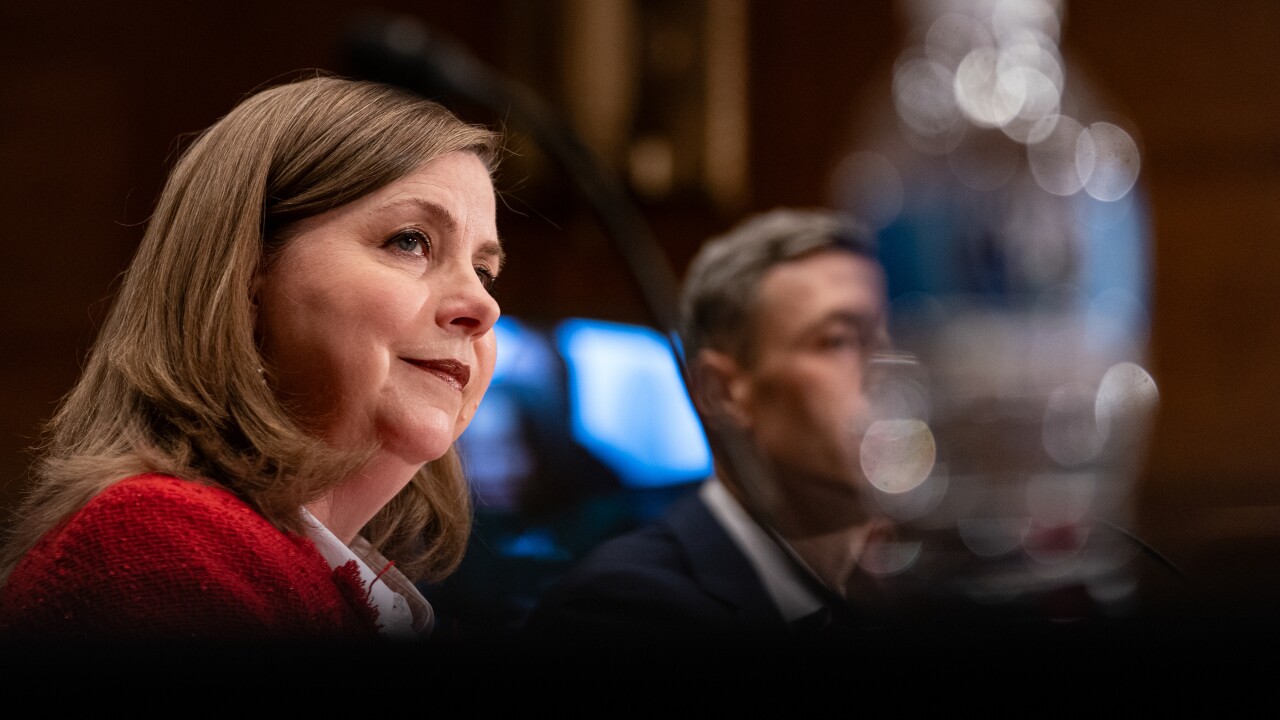Barnett Banks Inc.'s experiment with interactive television will come to a close with mixed results.
Processing Content
Since November, the bank has been providing television-based services to about 130 cable households as part of a broader interactive TV test by Time Warner Inc. in Maitland, Fla.
With Time Warner announcing its intention last week to terminate the program by yearend, so too must Barnett.
"We would have continued if we could," said Jerri Franz, spokeswoman for the $40 billion-asset Barnett in Jacksonville, Fla. "Clearly the bank feels it was a good learning opportunity, and that was the position we took from the outset."
About 4,000 households participated in the Time Warner Full Service Network project, which provided a wide range of services, including movies on demand, with the aid of sophisticated set-top boxes.
Of the 4,000, about 1,000 were Barnett customers, and 13% of those did banking on the screen.
The test reportedly indicated that interactive television has some maturing to do before it will be embraced by a large segment of the population.
"Demand did not meet expectations," said Edward Neumann, director at Dove Associates in Washington. "There was only one way to access the service, and from only one location. Consumers are increasingly interested in geographically independent access."
Barnett's interactive TV initiative used animation devised by Gorilla Systems of Tampa. With a free service called Quick ATM, Barnett customers could check their balances, view statements, transfer funds, and pay bills using their remote controls.
Barnett executives found consumers frequently used the system to check balances and move money between accounts but were less inclined to use it to pay bills.
All pilot participants could call up Barnett Town, an information video that explained the bank's products and services. If interested in banking through their TVs, the consumers could open an account by making a telephone call.
Time Warner's system was connected to the bank's customer files by high- speed telephone line, and data transmissions were encrypted.
Time Warner executives saw the trial as a good research and development exercise.
The project's results matched those of a similar undertaking headed by Bell Atlantic Corp. In a 1996 test involving 1,000 households, Bell Atlantic found that interactive TV is expensive to operate, and that consumers favor services like movies on demand over financial applications, such as on-line shopping.
Time Warner plans to roll out a new service, Pegasus, that puts the lessons from Maitland and elsewhere to further use.
"It's bittersweet for us to close off the R&D team, but we're rolling out a new technology that is more cost-effective," said Tammy Lindsay, vice president of Time Warner's Full Service Network.
She said the Pegasus program will offer Road Runner (a cable modem project already rolled out in four cities), video on demand, and Internet access.
"The Pegasus system will be able to offer Road Runner TV through PCs, and Web-link services through remote control," said Ms. Lindsay.
Barnett is aware of Pegasus but has not decided whether to sign up.
"Time Warner has talked to us and kept us up to date with what it is doing. We will see what happens down the road, but for now we have no new agreements," said Ms. Franz.





